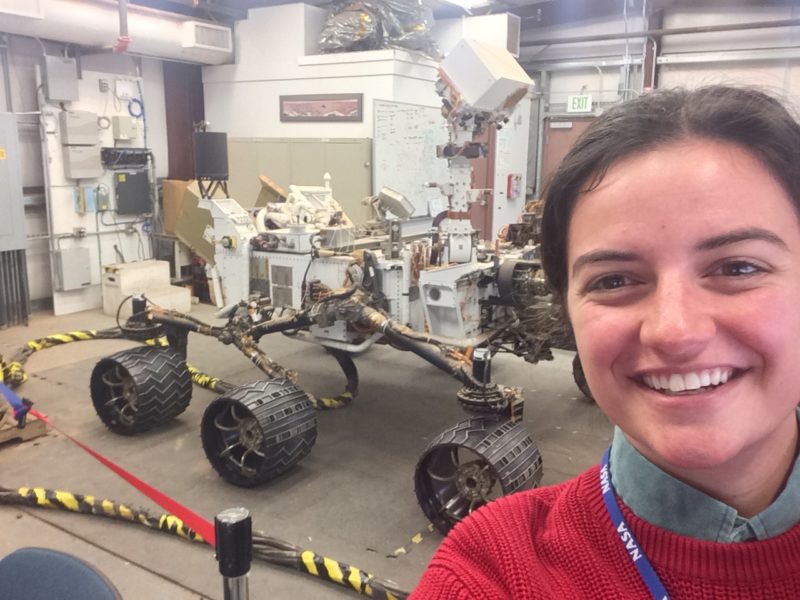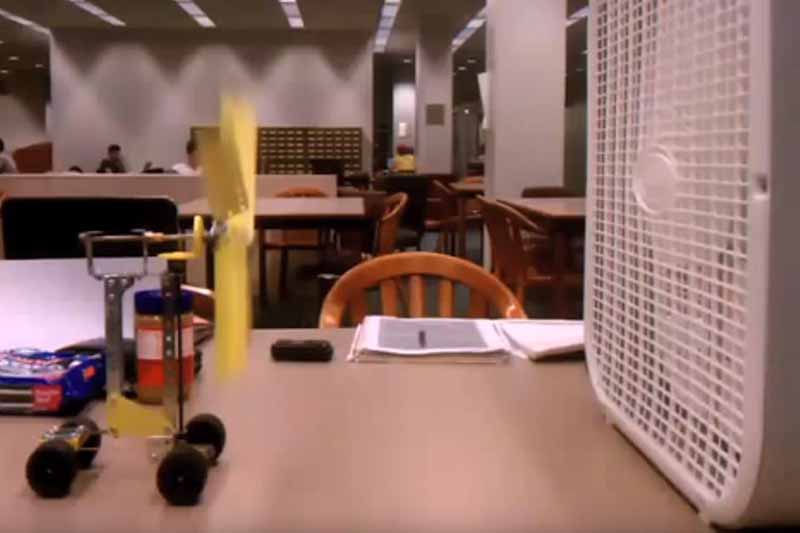Undergraduate Studies
The curriculum in mechanical engineering focuses on four areas: applied mechanics, thermofluids engineering, materials science, and controls.
- Applied mechanics is the study of the motion and deformation of structural elements acted on by forces in devices that range from rotating industrial dynamos to dentists’ drills.
- Thermofluids engineering deals with the motion of fluids and the transfer of energy, as in the cooling of electronic components or the design of gas turbine engines.
- Materials science is concerned with the relationship between the structure and properties of materials and with the control of structure, through processing, to achieve desired properties.
- Practical applications are in the development of composite materials, metallurgical process industries, and advanced functional materials. Controls are critical to any engineered system in which sensors and actuators of several types communicate and function.
Courses in each area form the foundation for advanced analytical and creative design courses that culminate in a two-semester capstone design project. Faculty encourage students throughout the curriculum to use computer-aided design tools and high-performance computer workstations.

Carly Parlato, E’18, mechanical engineering, takes a selfie while on co-op at NASA where she worked on the Mars 2020 rover. She was also a member of the student team that finished first among North American teams and second overall in the global Hyperloop Pod Competition. Upon graduation Parlato joined SpaceX as an associate engineer.
Co-op is a highlight of the undergraduate education at Northeastern. Our cooperative education program, founded nearly a century ago in the College of Engineering, is one of the largest and most innovative in the world. Our co-op advisors maintain a database with over 2000 engineering employers across over 40 states and around the globe, and help students to secure positions along their career trajectories. Most undergraduate engineering students elect to undertake two to three six-month assignments in industry as part of their education.
For seniors, our capstone design program provides the opportunity to work on an open-ended design problem in mechanical or industrial engineering. Students tackle tremendous diversity of projects and have created innovative technology products and next-generation research instrumentation that have resulted in patents and licensing agreements.
In addition to course work and co-op, there are a variety of student organizations in the college. In MIE, we have very active student chapters of the American Society of Mechanical Engineers (ASME) and the Institute of Industrial Engineers (IIE). Our undergraduate students participate in a variety of extracurricular activities such as the Society of Automotive Engineers (SAE) Open Hood and Under Chassis Initiatives as well as in the Baja SAE Competitions, and the For Inspiration and Recognition of Science and Technology (FIRST) Competition.
